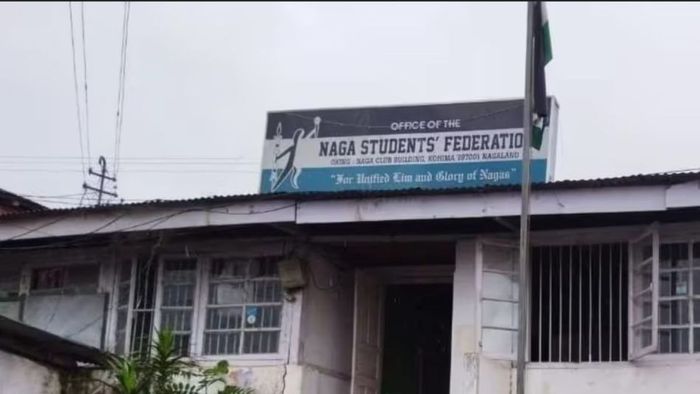Naga Students' Federation demands independent ILP Commission to address illegal immigration
The Naga Students' Federation (NSF) has submitted a formal representation to the Chief Secretary of Nagaland, urging the government to establish an independent Inner Line Permit (ILP) Commission aimed at tackling the influx of illegal immigrants into the state.

- Nov 12, 2024,
- Updated Nov 12, 2024, 2:26 PM IST
The Naga Students' Federation (NSF) has submitted a formal representation to the Chief Secretary of Nagaland, urging the government to establish an independent Inner Line Permit (ILP) Commission aimed at tackling the influx of illegal immigrants into the state.
In their letter, the NSF acknowledged the government’s recent efforts to extend the ILP to the districts of Dimapur, Chumoukedima, and Niuland but highlighted the continuing, unchecked immigration as a serious threat to Nagaland’s unique identity, culture, and demographic balance.
The NSF stated that while the ILP has historically been a regulatory measure designed to protect the rights and security of indigenous communities, recent lapses in enforcement have allowed illegal immigrants to enter and settle within Naga territory, straining the social structure and posing potential risks to regional security.
Key Proposals in the NSF's Representation:
Also Read: Arunachal: Indian Army concludes motorcycle expedition honoring 1962 Walong heroes
Formation of an ILP Commission: The NSF has recommended the immediate formation of an independent ILP Commission to strictly regulate entries into Nagaland. This commission would be tasked with refining ILP protocols and ensuring effective implementation across all districts.
Community Empowerment: The proposed ILP Commission should work closely with local bodies, empowering village councils to withhold Permanent Residential Certificates (PRCs) and other official documents from illegal immigrants.
Enhanced Community Collaboration: The NSF emphasized the need for community engagement, advocating for increased awareness and vigilance to support law enforcement in monitoring and reporting illegal entries.
The NSF proposed a six-month timeframe for establishing this commission, stressing that it should work closely with relevant stakeholders to adopt a comprehensive and sustainable approach to immigration control.
In conclusion, the NSF expressed confidence that an independent ILP Commission would strengthen enforcement, preserve Nagaland’s cultural integrity, and protect the social cohesion of its communities.